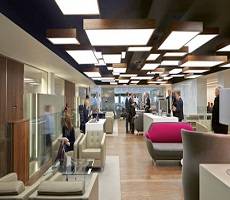December 20, 2013
Google is a better source of information than HR team, say line managers
The image of the cosy Personnel Manager, part mentor part counsellor, has little in common with the reality of the modern Human Resources professional, steering the organisation through the upheavals of a prolonged recession and engaged in strategic thinking, such as big data. In many ways the professionalisation of HR, which (unlike FM) has achieved Chartered Status, is an encouraging sign that organisations understand the importance of their most important assets – the people. However, the rise of the HR professional has also created barriers between them and line managers. A lack of openness and slow response to queries from HR is driving line managers to Google the answers rather than wait for their increasingly preoccupied HR colleagues to respond. (more…)



























December 18, 2013
Companies need to work out what they want to emerge from the BYOD pile-up
by Mark Eltringham • Comment, Facilities management, Flexible working, Technology
(more…)